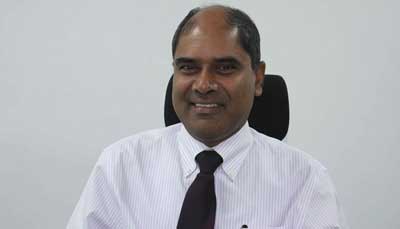Tuesday Feb 24, 2026
Tuesday Feb 24, 2026
Thursday, 31 March 2016 00:00 - - {{hitsCtrl.values.hits}}
 “Sri Lanka’s ability to create a demand driven education system that focuses on lifelong learning will determine our country’s capacity to embrace the benefits of a knowledge economy,” were the sentiments echoed by Universal College Lanka (UCL) Director Dr. Harsha Alles who spoke on the subject of how Sri Lanka should develop its higher education to be on par with global industry standards.
“Sri Lanka’s ability to create a demand driven education system that focuses on lifelong learning will determine our country’s capacity to embrace the benefits of a knowledge economy,” were the sentiments echoed by Universal College Lanka (UCL) Director Dr. Harsha Alles who spoke on the subject of how Sri Lanka should develop its higher education to be on par with global industry standards.
“We need to offer our students the opportunities to gain a higher education that will focus on creating an enabling environment which promotes innovation and creativity and one that supplies the knowledge and the market oriented skills needed to meet not only local industry requirements but also international standards, making them highly employable graduates globally. Our local university education is too academic and needs to be made more demand driven, hence the reason that Sri Lanka’s university system has not been successful at producing students that are prepared for the world of work,” he explained.
“To overcome this gap we need to form a closer link between academia and the global industry. Our universities need to improve their curriculum and create new knowledge that will nurture and train students to become experts, in the wealth-generating fields of work such as science, technology and innovation. In fact, universities should be the breeding ground for leaders in our society. It is also increasingly important that our country affiliates ourselves with the right education partners globally by having strong ties with the world’s top ranked universities, which in turn will give our students the chance to compete successfully in being on par with other top graduates in the global market.”
He went on to say, “Universities around the world are coming under greater pressure to increase their productivity. With research intensive universities being a crucial factor in this process, our universities need to promote excellence in research and education by emphasising the mutual dependence of these activities at the highest levels of learning. They need to educate the student population and broaden its perspectives; by performing research that creates new understanding, new technologies and the potential for action and by providing a store of knowledge that students as a whole can draw upon. Today’s knowledge economy identifies knowledge as the most important form of capital and university research is one of the most important sources of new knowledge.”
Citing his own initiatives in this sphere he said that his organisation had affiliated themselves as the exclusive local partner for Monash in Australia to offer Sri Lankan students the opportunity to study some of their top ranked programs comprised of Engineering, IT and Business.”
Monash is one of Australia’s prestigious Group of Eight and has achieved triple crown accreditation for its Melbourne-based Business and Economics faculty, as well as being ranked in the top 50 universities globally in ‘Engineering and Technology’. Therefore we can be assured that the knowledge and grounding that our local students gain through studying for such degrees will not only give them the opportunity to compete successfully in the international employment arena, but they also contribute their knowledge, innovation and creativity to help lead our own local businesses be on par with global organisations.” Dr. Harsha concluded by saying that he strongly believed that it should be a top priority of the country to ensure that the long term sustainability of higher education in our country have both the right quality of education and financial viability. To achieve this he said it is important to encourage the private sector to invest in higher education ventures by bringing in reputed foreign universities, backed by an adequate regulatory system to ensure that the correct criteria are in place whilst having state run universities geared to meet global standards by having impeccable track records with respect to governance and quality assurance and offering degrees that are aligned to meet the demands of the competing global market.”